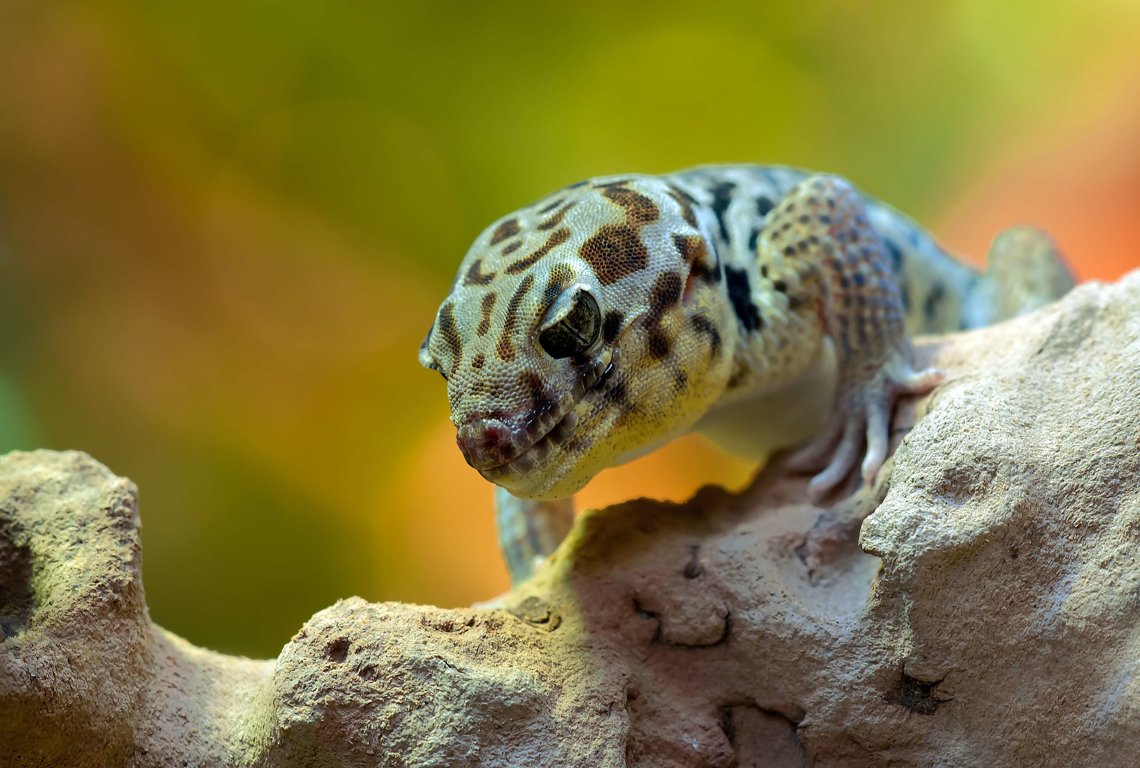
Geckos
Geckos are small to medium sized lizards naturally found in temperate and tropical regions. They are more commonly found around the Equator and in the Southern Hemisphere. Some species also live north of the Equator in warmer regions. They live in a wide variety of habitats including jungles, rocky deserts, rainforests, mountains, grasslands and even urban areas.
There are over 2,000 known different species of gecko found in a wide variety of colors and markings. They range considerably in size. Geckos are able to walk up vertical surfaces because they have feet covered in tiny hairs that stick to surfaces like suction cups.
They are carnivorous reptiles, feeding on insects, worms, small birds, reptiles and small mammals. Some geckos eat plant matter such as moss.
Snakes are the main predator of geckos. Large spiders, mammals and birds also feed on geckos.
Female geckos lay 2 sticky eggs with a soft shell that quickly hardens. Within 1 to 3 months, depending on the species and habitat, babies hatch.
Many gecko species are threatened with extinction due to habitat loss and pollution and the exotic pet trade. Geckos are very popular reptiles in pet stores. These small, frail-looking lizards can often live up to 30 years and require a very particular environment without the slightest variance in temperature. They feed on insects and baby mice.
There is a health risk associated with having a gecko. Seventy thousand people in the U.S. contract salmonellosis from direct or indirect contact with reptiles and amphibians every year. Children, pregnant women, and people with compromised immune systems are particularly at risk of serious illness or death. If you or anyone close to you is in one of these categories, rethink bringing a gecko into your home—even healthy-looking animals may be carrying the disease.
Welcoming a gecko into your home means a commitment of time, space and money. You’ll need to provide the right temperature and humidity and specific light/dark cycles that may not coincide with your own or be convenient to you. Backup power is necessary to keep a constant temperature in the event of a power failure.
In all, costs for food, an enclosure, lighting, and vet bills can total hundreds of dollars per year.
Purchasing a gecko caught in his or her natural habitat encourages the removal of wildlife from delicate ecosystems. Buying captive-bred animals only encourages breeders to replenish their stock. If you must have a gecko as a companion animal, adopt from a local shelter or rescue group.
